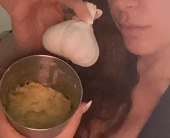posted 4 years ago
We don't know where you are, so it's hard to comment. Generally speaking, a horse corral would be a great starting point for a veggie garden provided that the light and moisture are good. I'm not sure of your subsoil, so compaction may be an issue; but that is easily remedied. If it's a smaller and intensively manured space, soil additives may be needed to take up excess nitrogen (char, mulch, old compost, sawdust, peat ...).
Jen makes a valid point. You could test this by stealing a soil sample and sprouting beans in it. If they grow normally, all is well. If they suddenly grow corkscrew and crazy weird, chemical shenanigans are afoot.









